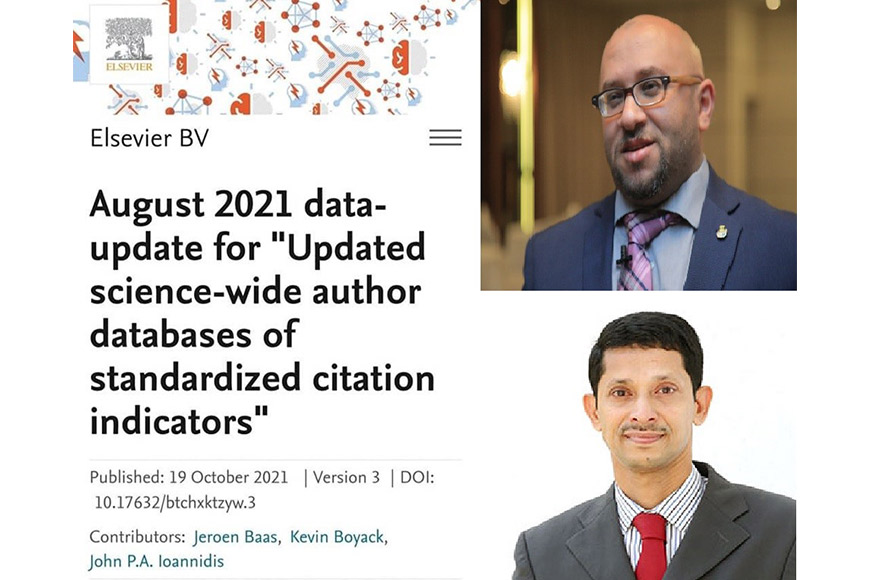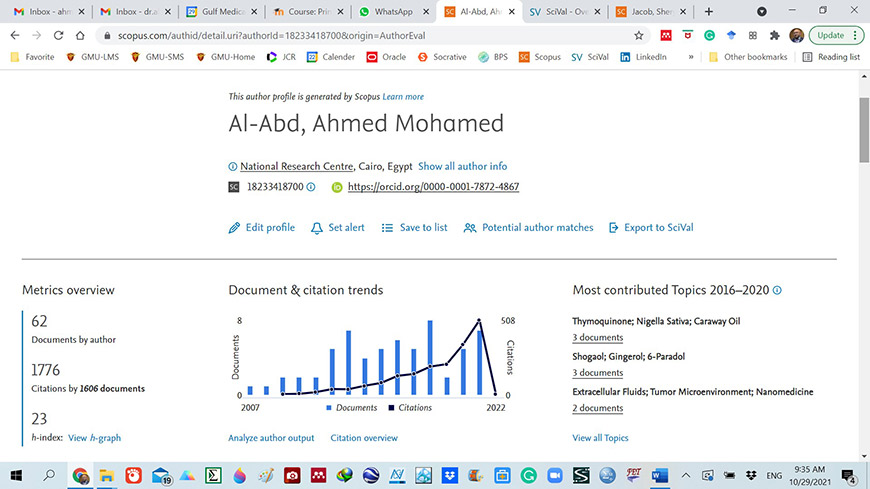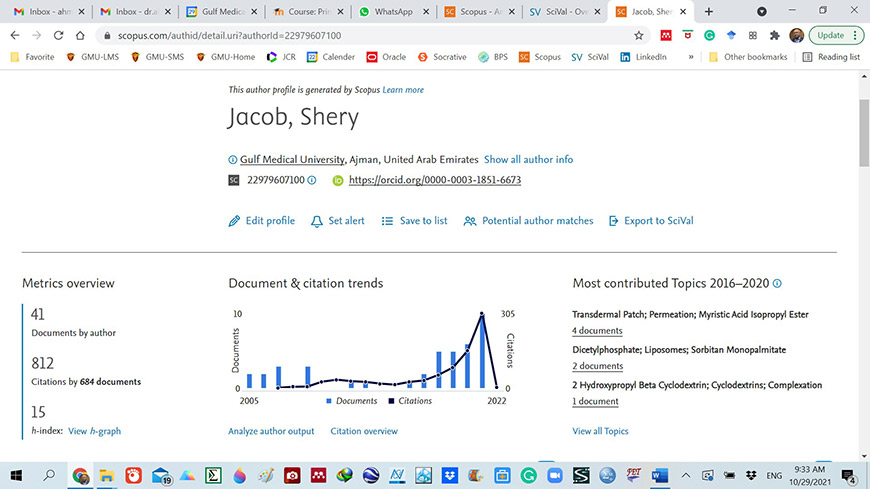The Meta Research Innovation Center at Stanford (METRICS), Stanford University in collaboration with SciTech Strategies Inc. and the Research Intelligence division of Elsevier Inc. generate an annual data bases of standardized citation metrics across all scientists and scientific disciplines in the world. This data base utilizes Scopus data metrics to calculate a standardized composite citation index providing an annually updated assessment for all scientists’ impact in their field of research. The latest list of the top 2% scientists worldwide in all discipline along with the methodology for calculating the standardized composite citation index was published in Plos Biology Journal on Oct. 16th, 2021, with the names of Prof. Ahmed M. Al-Abd, Professor of Pharmacology & Toxicology and Associate Dean-Academics in the College of Pharmacy and Professor Shery Jacob, Professor of Pharmaceutics in the College of Pharmacy.

Professor Al-Abd published more than 60 Scopus-indexed publications in the field of Pharmacy & Pharmacology/subfield of oncology & carcinogenesis as per the Science-Matrix Classification. His Scopus h-index is 23 with a total 1771 citations at the end of Oct. 2021. In addition, his Google Scholar h-index is 26 with a total 12421 citations for 123 Google Scholar-indexed publications.

Professor Jacob published more than 40 Scopus-indexed publications in the field of Pharmacy & Pharmacology as per the Science-Matrix Classification. His Scopus h-index is 15 with a total 812 citations at the end of Oct. 2021. In addition, his Google Scholar h-index is 20 with a total 3650 citations for 71 Google Scholar-indexed publications.

Prof. Khalifa, Dean – College of Pharmacy and Vice-Chancellor for Quality Assurance & Global Engagement commented: “Research has always been at the forefront of our planning and a major part pf our mission at Gulf Medical University. We are proud of our faculty who are role models for their students. Our strategic approach to research in all of our degree programs is expected to produce graduates who will progress in their career to become clinician scientists. What a great way to advance pharmacy education and practice!”.

